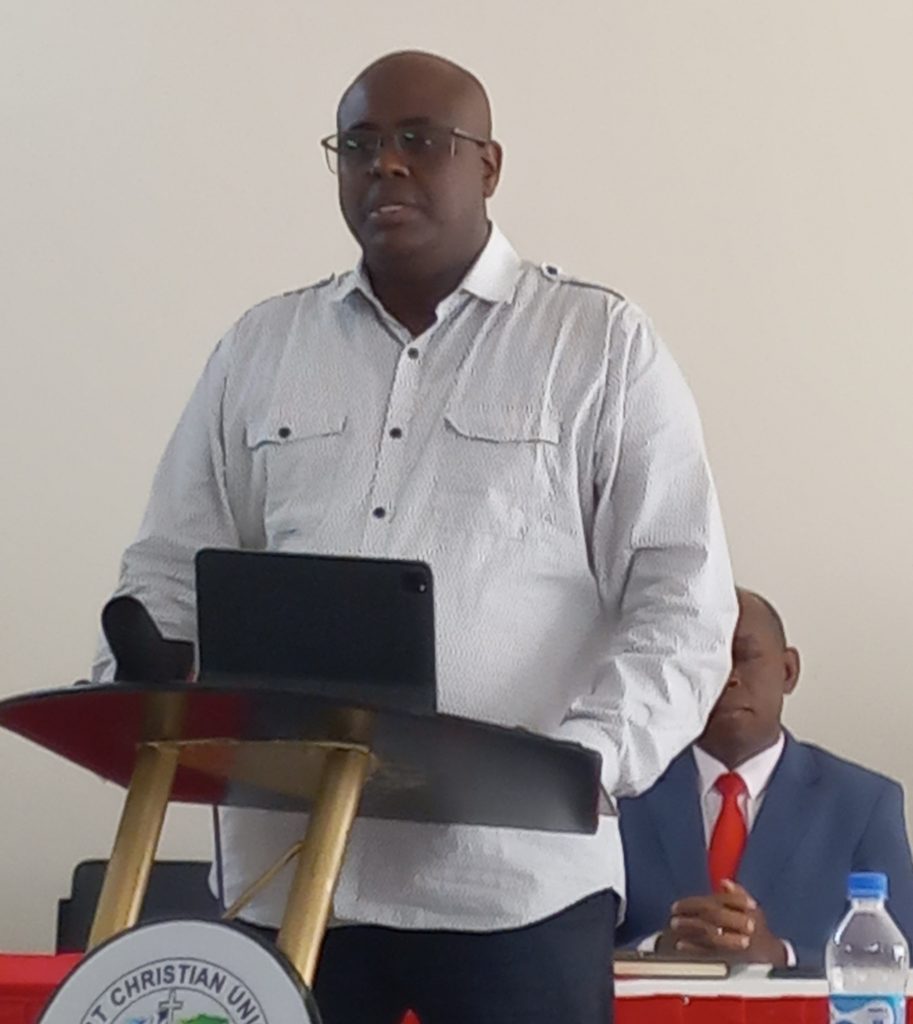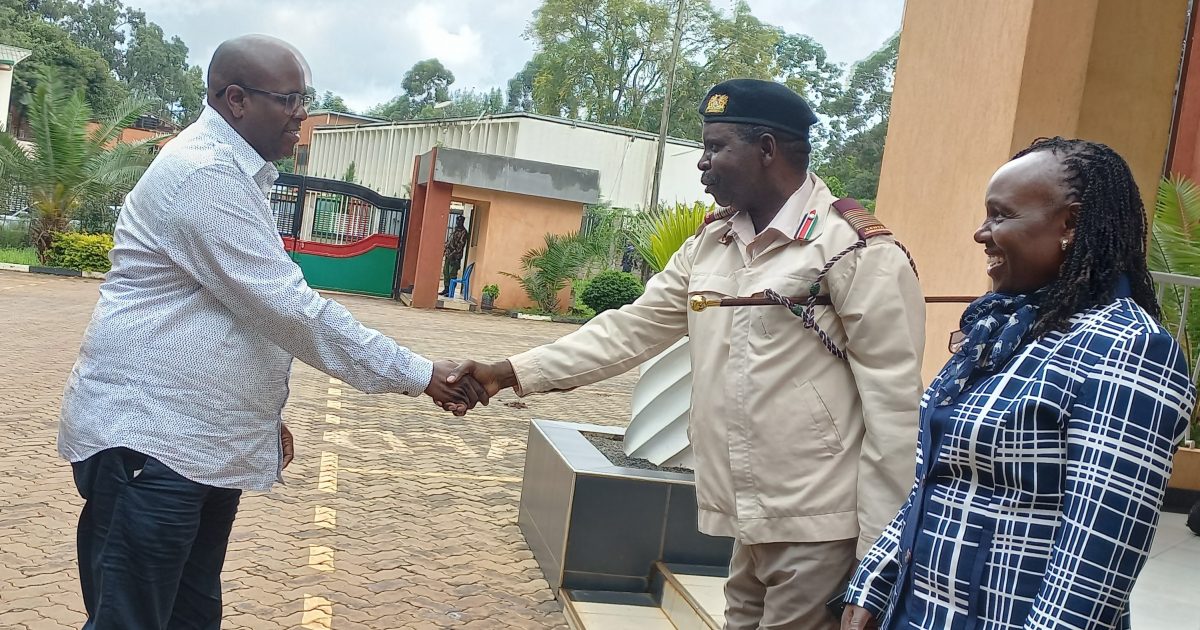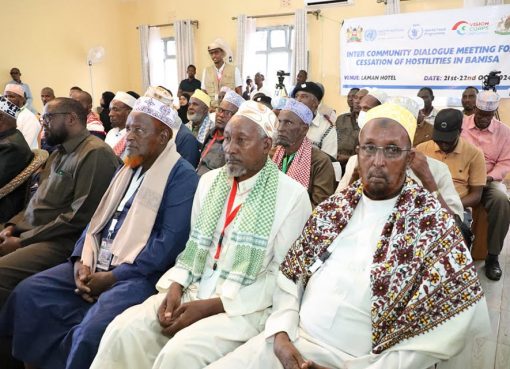The government has rolled out a productivity mainstreaming training programme in various institutions to enhance and entrench a productivity culture in the public service.
The programme is one of the performance targets set for Ministries, Departments and Agencies (MDAs) across the Country informing the three weeks training starting on November 20th to 8th December.
The National Productivity and Competitiveness Centre (NPCC) in the State Department for Labour and Skills Development, Ministry of Labour and Social protection kicked off the trainings and the implementation is one of the targets in the 20th cycle of the public sector Performance Contracting (PC) 2023/24 financial year.
Speaking today when he officially opened a productivity mainstreaming training for the lower central region at Kiambu Institute of Science and Technology (KIST), Principal Secretary in the Cabinet Office Dr. Idris Salim Dokota said the training will not only enhance productivity in the public sector but the gains are expected could spur the economy to desired production levels with limit inputs.
“The ballooning wage bill currently stands at 46 percent of the ordinary revenue against the recommended 35 percent thus exerting pressure on Government expenditure. This training therefore forms a critical part of public sector reforms and is geared towards operational efficiency, labour efficiency and customer satisfaction”, he said.
Dr. Dokota added that in order to address the wage bill challenge the productivity enhancement in the public sector is one of the measures that the government has put in place and thus the participation from the various institutions in the training will enhance productivity in their respective MDAs.
“The Kenya Vision 2030 recognizes that Kenya’s main potential lies in its people, that is, we are talking about their creativity, work ethic, education, their entrepreneurial and other skills”, he said.
The PS noted that there is need to carry out an assessment on the productivity level across all sectors and productivity growth and therefore the training will form part of the critical public sector reforms, geared towards minimizing operational costs and improving labour productivity.

PS Dokota said the government has so far made significant progress in alignment with its action plan and that is why the 20th cycle of performance contracting guidelines talks about creating efficiency in terms of consumers getting the right service.
The training experts Dr. Dokota said will train the various institutions in developing labour productivity metrics which will address the key elements of productivity Quality, Cost and Delivery (QCD); Collect data on the same; Analyze and compute a productivity index and design a productivity improvement strategy.
He implored the participants of the programme to be champions of productivity mainstreaming within their respective MDAs so that their productive involvement will not only elevate their individual capacities but also play a pivotal role in the government’s collective vision of a more productive and efficient governance system in this country.
“Together, let us seize the knowledge imparted here and translate it to tangible action, forging a path towards realization of Bottom-Up Economic Transformation Agenda (BETA)”, Dr. Dokota said.
The training programme undertaken the stewardship of the Productivity Mainstreaming Technical Committee with support from the State Department for Cabinet Affairs, the Salaries and Remuneration Commission (SRC), the National Productivity and Competitiveness Council (NPCC), and the State Department for Performance and Delivery Management.
Jane Maina the team leader of the team at KIST said a single department could not drive the productivity agenda alone thus the training took a multi-agency approach comprising the various state actors.

She explained that at KIST currently they are hosting and training 5 teams drawn from one university (Mama Ngina ) and four other institutions from Limuru, Lari, Gatundu South, and Mandera to develop a productivity metrics for their organizations.
“Metrics are developed at activity level and are used to give activities we do, mathematical and scientific dimension”, she said,
After the development of the metrics, she added the organisations will be expected to collect data for the set metrics for computation of a productivity index for the organisation.
The ultimate aim of the national agenda, she noted was to entrenched in the culture of productivity in work ethic and work environment in order for the country to become productive just like other countries.
“The labour productivity in the country is not doing well compared to other African countries and according to conference Board total data base of 2022, Kenya labour productivity stood at 14,096 US dollars compared to Egypt which recorded 62,560 USD annually “
Kiambu County Commissioner Joshua Nkanatha and KIST (Now Kiambu National Polytechnic) Principal Sammy Waititu were among notable county officials who graced the inaugural opening session of the training programme.
By Wangari Ndirangu





